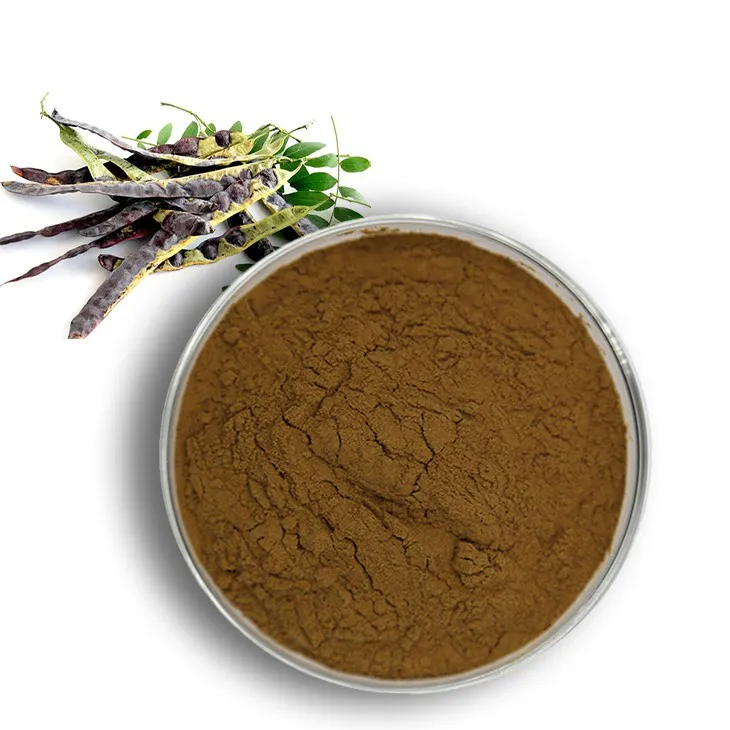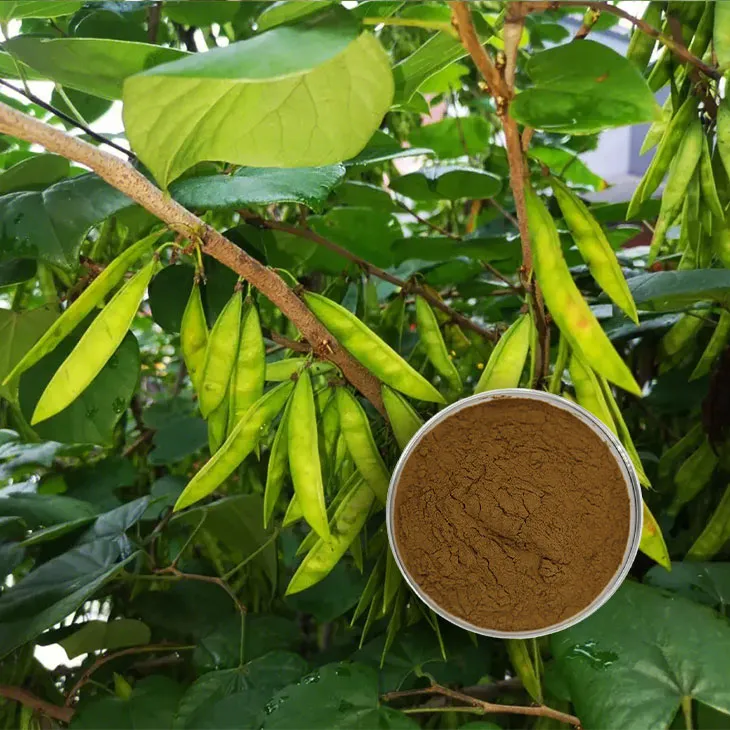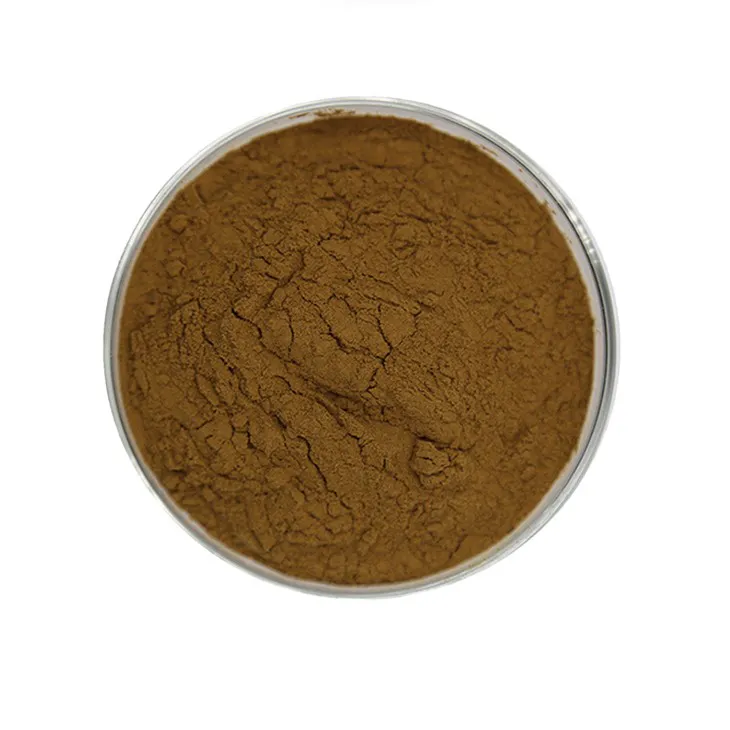- 0086-571-85302990
- sales@greenskybio.com
Saponin extract: What are its benefits and how to take it?
2024-11-12

Introduction to Saponin Extracts
Saponin Extracts have emerged as a significant area of interest within the domain of natural health products. Saponins are a diverse group of compounds that are found in a wide variety of plants. These compounds possess unique chemical structures that endow them with a range of interesting properties. They are characterized by their ability to form stable foams when shaken in aqueous solutions, which is a result of their surfactant - like nature.

Benefits of Saponin Extracts
1. Acting as Natural Surfactants in the Body
One of the remarkable aspects of saponins is their role as natural surfactants within the body. In simple terms, surfactants are substances that reduce the surface tension between two substances. In the body, saponins can interact with cell membranes and other biological structures. This interaction may facilitate the removal of toxins. Toxins often bind to cells or are trapped within certain biological compartments. The surfactant properties of saponins can help in dislodging these toxins and promoting their elimination from the body. For example, they may enhance the function of the liver and kidneys, which are the primary organs involved in detoxification processes.
2. Enhancing Bioavailability of Nutrients
When consumed along with other nutrients, saponins have the potential to increase their bioavailability. Bioavailability refers to the proportion of a nutrient that is absorbed by the body and is available for physiological functions. Saponins can interact with nutrients in the digestive tract. For instance, they can form complexes with certain vitamins and minerals. These complexes can protect the nutrients from degradation during digestion and also facilitate their transport across the intestinal wall. This means that more of the nutrient is absorbed into the bloodstream and can be utilized by the body's cells. A study has shown that when saponins were co - consumed with a particular type of antioxidant, the absorption of the antioxidant in the body was significantly increased.
3. Hypoglycemic Effects
Some saponins have demonstrated hypoglycemic effects, which is of great importance, especially for diabetics. These saponins can influence the body's glucose metabolism. They may act on the cells in the pancreas that are responsible for insulin secretion. By enhancing the function of these cells, saponins can promote the release of insulin. Insulin is a hormone that is crucial for regulating blood glucose levels. Additionally, saponins may also improve the sensitivity of cells in the body to insulin. This means that cells are better able to take up glucose from the bloodstream, thereby reducing blood sugar levels. Research on certain plant - based saponins has shown promising results in terms of their ability to control blood glucose levels in diabetic animal models.
4. Potential Anti - inflammatory Properties
There is also evidence to suggest that saponins may possess anti - inflammatory properties. Inflammation is a natural response of the body to injury or infection. However, chronic inflammation can lead to various health problems, such as heart disease, arthritis, and certain cancers. Saponins may act on the cells of the immune system that are involved in the inflammatory response. They can modulate the production of inflammatory mediators, such as cytokines. By reducing the production of these pro - inflammatory molecules, saponins can help to dampen the inflammatory response in the body. Some in - vitro studies have shown that saponin extracts can inhibit the activation of certain inflammatory pathways in immune cells.
5. Antioxidant Activity
Another benefit of saponin extracts is their antioxidant activity. Antioxidants are substances that can neutralize free radicals in the body. Free radicals are highly reactive molecules that are generated during normal metabolic processes as well as due to exposure to environmental factors such as pollution and radiation. If left unchecked, free radicals can cause damage to cells, including DNA damage, which can lead to various diseases, including cancer. Saponins can scavenge free radicals and prevent them from causing oxidative damage. Some saponin - rich plants have been found to have antioxidant capacities comparable to well - known antioxidant - rich foods like berries.

How to Take Saponin Extracts
1. Consult a Healthcare Professional
Before starting to take saponin extracts, it is highly advisable to consult a healthcare professional. This is because saponin extracts can interact with medications or may not be suitable for certain individuals. For example, if you are already taking medications for diabetes or high blood pressure, the addition of saponin extracts may affect the efficacy of these medications or cause unwanted side effects. A healthcare provider can assess your individual health status, including any pre - existing medical conditions and medications you are currently taking, and provide personalized advice on whether saponin extracts are a suitable addition to your health regimen.
2. Consider Supplements
There are supplements available in the market that contain saponin extracts. However, when choosing a supplement, it is important to be cautious. Look for products from reputable manufacturers. Check the label for information on the source of the saponin extract, the purity of the product, and any additional ingredients. It is also crucial to consider the proper dosage. Taking too much of a saponin supplement can lead to adverse effects. Start with the recommended dosage and monitor your body's response. Some people may be more sensitive to saponin extracts than others, so it is important to pay attention to any signs of discomfort or adverse reactions.
3. Dietary Incorporation
Another way to obtain the benefits of saponins is by incorporating saponin - rich plants into your diet. Quinoa is one such example. Quinoa is a highly nutritious grain - like crop that contains a significant amount of saponins. However, it is important to note that the saponins in quinoa can give it a bitter taste. To reduce this bitterness, quinoa is often rinsed thoroughly before cooking. Other saponin - rich plants include legumes like soybeans and certain herbs. By including these plants in your diet, you can potentially benefit from the saponin content in a more natural and holistic way. For example, consuming a diet rich in soy products has been associated with various health benefits, some of which may be attributed to the saponins present in soy.

Conclusion
In conclusion, saponin extracts offer a wide range of potential benefits, from acting as natural surfactants to having hypoglycemic and antioxidant effects. However, when considering taking saponin extracts, it is essential to approach it with caution. Consulting a healthcare professional, choosing high - quality supplements if needed, and incorporating saponin - rich foods into your diet are all important steps to ensure that you can safely and effectively enjoy the potential benefits of these interesting natural compounds.

FAQ:
What are saponin extracts?
Saponin extracts are substances derived from plants. They are characterized by their soap - like properties. Saponins are glycosides that consist of a sugar part and a non - sugar part, and these extracts can have various potential health benefits.
Can saponin extracts help with weight loss?
There is no conclusive evidence directly linking saponin extracts to weight loss. However, their potential to enhance nutrient bioavailability and aid in toxin removal might have an indirect impact on overall metabolism. But more research is needed in this regard.
Are there any side effects of taking saponin extracts?
While saponin extracts are generally considered safe when taken in appropriate amounts, some people may experience digestive issues such as nausea or diarrhea. Also, improper use or excessive dosage can lead to potential adverse effects. It is crucial to consult a healthcare provider before starting any saponin extract supplement.
How do saponin extracts work to lower blood sugar?
The exact mechanism by which some saponins lower blood sugar is not fully understood. It is believed that they may influence the body's insulin sensitivity or the way cells take up glucose. However, this is an area of ongoing research, and more studies are required to clarify the precise pathways.
Can saponin extracts be used by everyone?
No, not everyone can use saponin extracts. Pregnant or breastfeeding women, people with certain medical conditions (such as liver or kidney diseases), and those taking specific medications should avoid or use with caution. As always, consulting a healthcare professional is essential.
Related literature
- Saponins: Properties, Applications, and Health Benefits"
- "The Role of Saponin - Containing Plants in Nutrition and Health"
- "Saponin Extracts: A Comprehensive Review of Their Pharmacological Activities"
- ▶ Hesperidin
- ▶ citrus bioflavonoids
- ▶ plant extract
- ▶ lycopene
- ▶ Diosmin
- ▶ Grape seed extract
- ▶ Sea buckthorn Juice Powder
- ▶ Beetroot powder
- ▶ Hops Extract
- ▶ Artichoke Extract
- ▶ Reishi mushroom extract
- ▶ Astaxanthin
- ▶ Green Tea Extract
- ▶ Curcumin Extract
- ▶ Horse Chestnut Extract
- ▶ Other Problems
- ▶ Boswellia Serrata Extract
- ▶ Resveratrol Extract
- ▶ Marigold Extract
- ▶ Grape Leaf Extract
- ▶ blog3
- ▶ blog4
- ▶ blog5
-
Organic Tongkat Ali extract powder factory.
2024-11-12
-
How to make powder with ashwagandha extract.
2024-11-12
-
Rosehip extract manufacturers from China.
2024-11-12
-
The best cat's claw extract in nature.
2024-11-12
-
Chinese Dandelion Leaf Extract Suppliers.
2024-11-12
-
Peppermint Oil
2024-11-12
-
Okra Extract
2024-11-12
-
Acerola Extract
2024-11-12
-
Troxerutin
2024-11-12
-
White Willow Bark Extract
2024-11-12
-
Mulberry Extract
2024-11-12
-
Buckthorn bark extract
2024-11-12
-
Andrographis Paniculata Extract Powder
2024-11-12
-
Acerola Juice Powder
2024-11-12
-
Citrus Aurantium Extract
2024-11-12





















